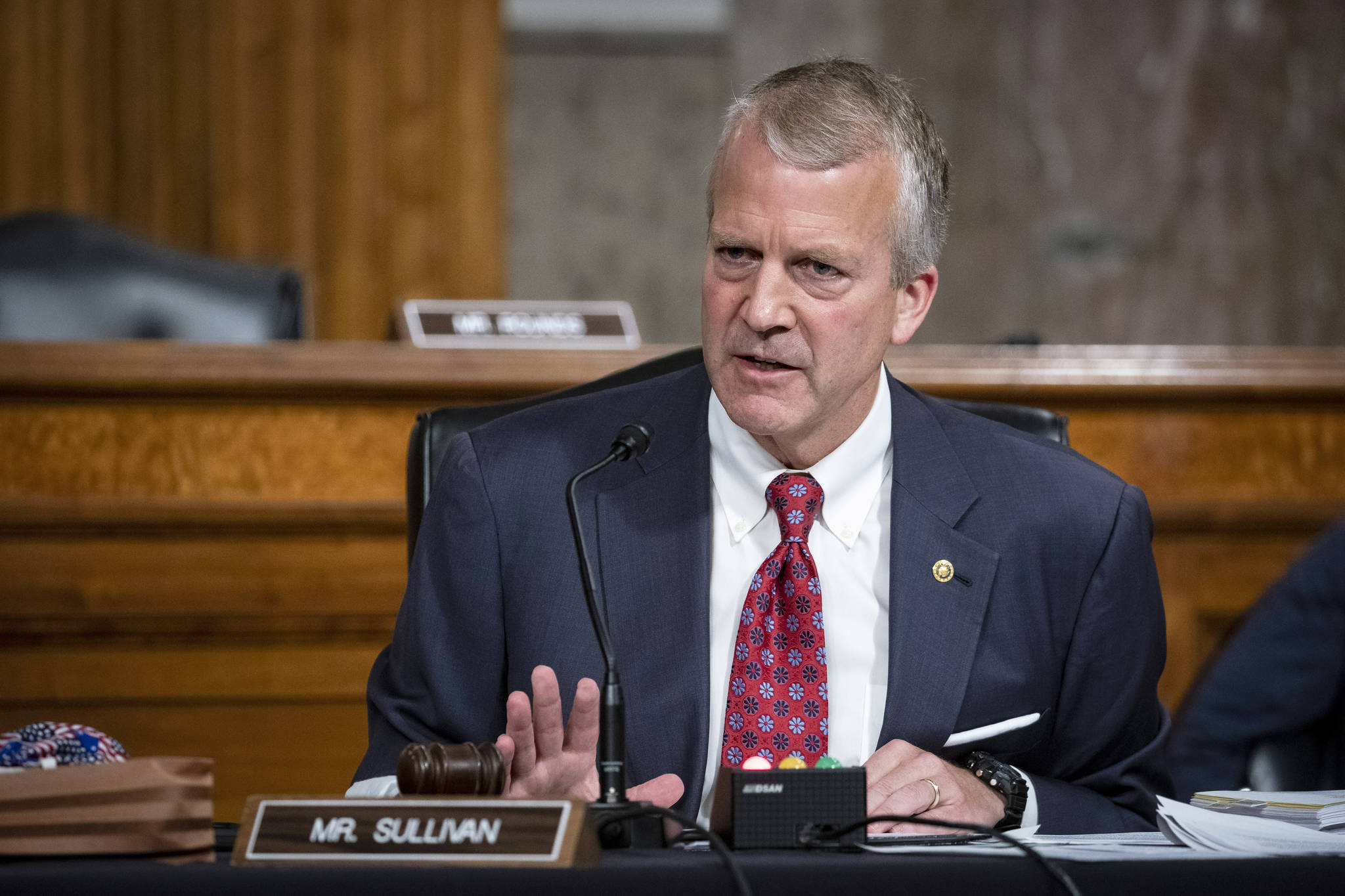By ALAN FRAM
Associated Press
WASHINGTON — Republicans and Democrats are unleashing millions in eleventh-hour spending to contest Senate seats in states that read like a list of reliable GOP strongholds: Alaska. Arizona. Georgia. Iowa. Kansas. Montana. South Carolina. Texas.
The reason: States in many traditionally conservative areas are in play next month and both sides know it.
Less than two weeks from an Election Day that will determine Senate control, each party is throwing late money at an up-for-grabs Democratic seat in Michigan. The Senate Majority PAC, a political committee aligned with the chamber’s Democratic leaders, has canceled its remaining $1.2 million in spending against GOP Sen. Cory Gardner in Colorado, sensing victory. National Democrats have reported no significant expenditures yet to protect Sen. Doug Jones, who seems likely to lose his seat in crimson Alabama.
The most striking feature of the campaign’s waning days is how both parties are focusing resources on seats in territory that’s usually solidly Republican. The spending underscores the broad map the GOP must defend, often in unlikely places, as it struggles to retain its current 53-47 chamber majority.
“I mean, Kansas?” said GOP consultant David Flaherty, citing a state that last elected a Democratic senator in 1932. “We’re in what looks like could be a wave election.”
The late maneuvering comes despite a political climate that seems to have only hardened in recent months. President Donald Trump’s deep unpopularity with moderate and educated voters, particularly in suburbs, is hurting down-ballot GOP candidates as well.
In addition, Democrat candidates have significantly outraised their Republican rivals in all but three of the 15 most competitive Senate races, most of which pit GOP incumbents against Democratic challengers. That’s freed national Democrats to aim last-minute money at longer-shot races than usual, in turn forcing Republicans to spend resources defending those seats.
“Close races and a chance to win,” J.B. Poersch, president of Senate Majority PAC, said of how his group decides to allocate money over the campaign’s dwindling days.
Easing the disparity a bit, Poersch’s group has been outraised 2-1 by its GOP counterpart, the Senate Leadership Fund. The Republican committee, with ties to Senate GOP leaders, reported mammoth donations last month of $60 million from Sheldon and Miriam Adelson and $20 million from Kenneth Griffin, billionaire donors.
Since mid-October, major GOP campaign committees have ordered TV and radio ads protecting Republican-held seats topping $5 million for Iowa Sen. Joni Ernst and $4 million for Arizona Sen. Martha McSally. They’ve triggered spending of around $2 million each to defend Sens. Dan Sullivan of Alaska, Steve Daines of Montana and John Cornyn of Texas.
The figures are from the ad-tracking firm Kantar/CMAG.
Perhaps most startling is the roughly $6 million that big GOP groups have spent recently for commercials to help Rep. Roger Marshall, the Republican seeking Kansas’ open Senate seat. He’s been badly outraised by Democratic opponent Barbara Bollier, a state senator, doctor and former Republican.
“It’s indicative of where we are. He’s getting outspent 3-1,” said GOP Sen. Pat Roberts, whose retirement is making the seat available.
“Liberal Barbara Bollier stands with them, not Kansas,” says the announcer in one National Republican Senatorial Committee TV spot that accuses her of backing “far-left Democrats” who want to pack the Supreme Court with additional justices.
Bollier has said the proposal “is not on my plate.” The committee is the Senate GOP’s political arm.
Over the same period, Democratic groups have launched ads against GOP senators including about $14 million aimed at Texas’ Cornyn; $3.5 million against Maine Sen. Susan Collins; over $2 million against Montana’s Daines and over $1 million against Ernst of Iowa, according to Kantar/CMAG.
This week alone, Future Forward has spent $4 million against Cornyn, according to reports the group has filed with the Federal Election Commission. The well-funded political action committee, which gets much of its war chest from high technology entrepreneurs, is using most of its money to oppose Trump.
“It’s just a very difficult environment,” said Cornyn. The Texan won his last reelection by 27 percentage points in 2014 and Trump carried the state in 2016 by 9 points.
FEC figures show that since mid-October, Republicans have reported spending around $9 million to defend Sen. Thom Tillis of North Carolina, $6.5 million for Sen. David Perdue of Georgia and $700,000 for South Carolina Sen. Lindsey Graham.
For those same states, Democratic groups like the Democratic Senatorial Campaign Committee have reported spending $11 million against Tillis, $6.5 million against Perdue and $1.5 million against Graham.
Besides Alabama, Michigan is the GOP’s best chance at gaining a seat and thwarting Democrats’ drive to a Senate majority. Over the past few days, Democrats’ Senate Majority PAC has steered $3.7 million to help incumbent Sen. Gary Peters, while the GOP senatorial committee has spent $1.1 million.
The late spending reflects a bipartisan consensus that even in a campaign notable for a low proportion of undecided voters, it makes sense to make last-ditch adjustments in where resources are going.
“It’s a little different this year,” said GOP pollster Jon McHenry, citing a torrent of early voting prompted by the coronavirus pandemic and efforts by the two parties, chiefly Democrats, to avoid potential Election Day problems. Around 52 million people have already voted, according to data gathered by The Associated Press.
McHenry said that even so, “It’s still important to appeal to independents who haven’t decided yet and to Republicans trying to push their side to turn out.”
“It matters,” agreed Poersch of Democrats’ Senate Majority PAC, citing a shift in voters’ sentiment over the final weeks of the 2016 campaign that helped Trump edge to victory. “It’s a folly to assume these races won’t be competitive right through Election Day.”

